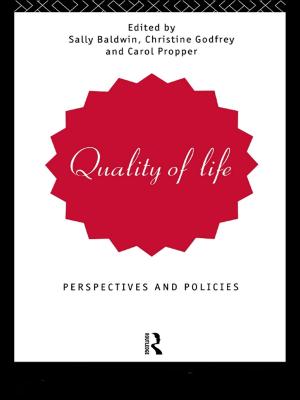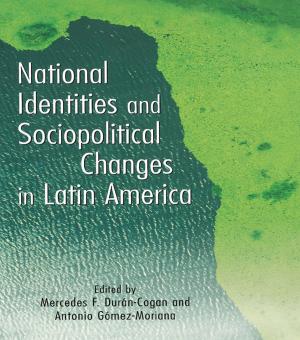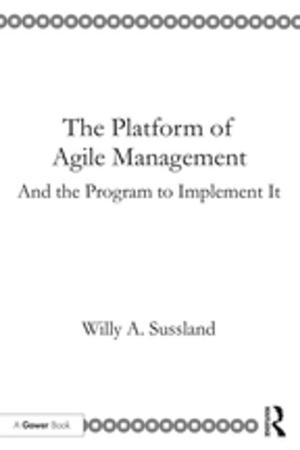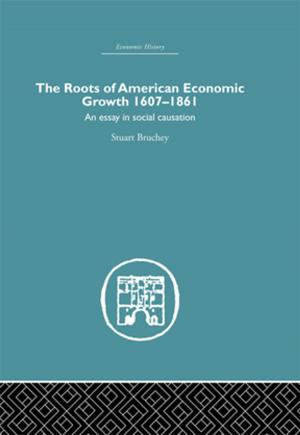Society, Culture and Opera in Florence, 1814-1830
Dilettantes in an "Earthly Paradise"
Nonfiction, Social & Cultural Studies, Social Science, Sociology| Author: | Aubrey S. Garlington | ISBN: | 9781351148863 |
| Publisher: | Taylor and Francis | Publication: | January 18, 2018 |
| Imprint: | Routledge | Language: | English |
| Author: | Aubrey S. Garlington |
| ISBN: | 9781351148863 |
| Publisher: | Taylor and Francis |
| Publication: | January 18, 2018 |
| Imprint: | Routledge |
| Language: | English |
Following the defeat of Napoleon in 1814, an event that signalled an end to nearly fourteen years of French domination, Florence seemed to enter a new cultural 'golden age' and by 1824 was described as 'an Earthly Paradise' by the political and liberal writer, Pietro Giordano. Politically, economically and culturally, the city prospered in this new era. After 1814 it seemed as if the Enlightenment had found a new beginning in Florence. Aubrey Garlington, a scholar of long standing in the music of early nineteenth-century Florence, considers the roles played by John Fane, Lord Burghersh, an English aristocrat, diplomat and dilettante composer together with his wife, Priscilla, in the development of the richly homogeneous culture that blossomed in Florence at this time. Burghersh, known today for being instrumental in the founding of the English Royal Academy of Music, composed six operas that were performed privately on numerous occasions at the English Embassy, his best known work being "La Fedra". Lady Burghersh became known for her painting and dilettante theatrical performances. Garlington provides a thorough re-examination of the categories 'professional' and 'dilettante' which were so important in the concept of music at this time. The notions of boundaries between public and private activity are discussed, and the operas themselves are examined specifically. Through the contemplation of the Burghershs's sixteen year stay in Florence, the significance of dilettante orientations are demonstrated to have been essential components for the city's musical and social life. Garlington draws together an impressive compilation of documentation regarding the part music played in shaping society and culture. In this way, the book will appeal not only to opera historians, musicologists and critics working on the nineteenth century, but also to historians and scholars of cultural theory.
Following the defeat of Napoleon in 1814, an event that signalled an end to nearly fourteen years of French domination, Florence seemed to enter a new cultural 'golden age' and by 1824 was described as 'an Earthly Paradise' by the political and liberal writer, Pietro Giordano. Politically, economically and culturally, the city prospered in this new era. After 1814 it seemed as if the Enlightenment had found a new beginning in Florence. Aubrey Garlington, a scholar of long standing in the music of early nineteenth-century Florence, considers the roles played by John Fane, Lord Burghersh, an English aristocrat, diplomat and dilettante composer together with his wife, Priscilla, in the development of the richly homogeneous culture that blossomed in Florence at this time. Burghersh, known today for being instrumental in the founding of the English Royal Academy of Music, composed six operas that were performed privately on numerous occasions at the English Embassy, his best known work being "La Fedra". Lady Burghersh became known for her painting and dilettante theatrical performances. Garlington provides a thorough re-examination of the categories 'professional' and 'dilettante' which were so important in the concept of music at this time. The notions of boundaries between public and private activity are discussed, and the operas themselves are examined specifically. Through the contemplation of the Burghershs's sixteen year stay in Florence, the significance of dilettante orientations are demonstrated to have been essential components for the city's musical and social life. Garlington draws together an impressive compilation of documentation regarding the part music played in shaping society and culture. In this way, the book will appeal not only to opera historians, musicologists and critics working on the nineteenth century, but also to historians and scholars of cultural theory.















